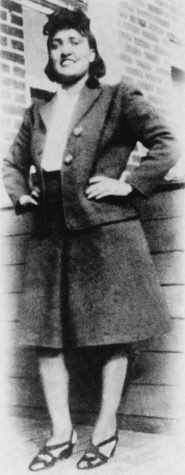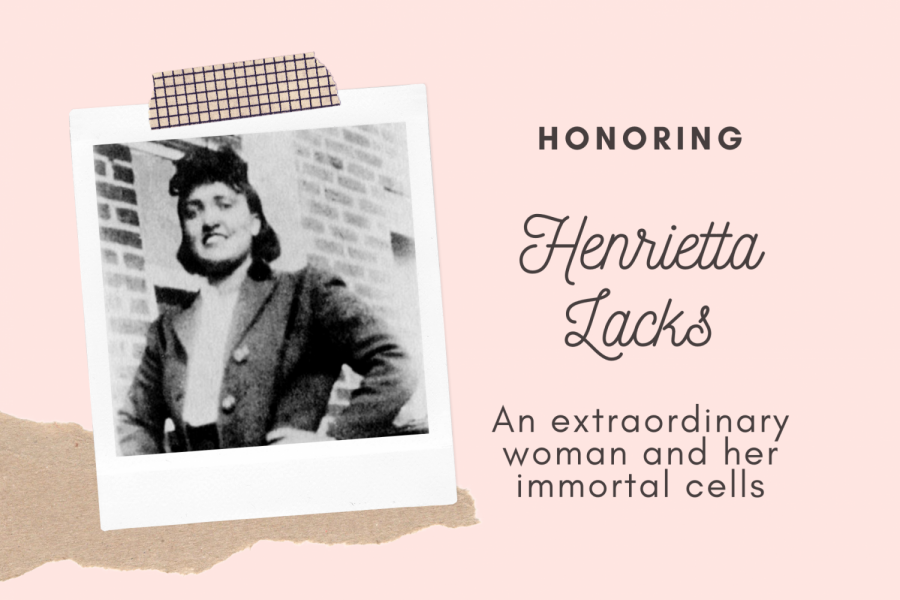Honoring Henrietta Lacks
An extraordinary woman and her immortal cells
February 5, 2020
In 1951, Henrietta Lacks, an African American woman from Roanoke, Virginia walked into John Hopkins Hospital in Baltimore, Maryland, one of the few hospitals that treated poor African Americans. During her stay at John Hopkins, doctors discovered a large tumor on her cervix, which was eventually diagnosed as cervical cancer. The cancer and the treatment for it ultimately killed Mrs. Lacks and left her family devastated, but in terms of history, that is not the important part of the story.

This is: Unbeknownst to Lacks some of her cancer cells were collected by George Otto Gey, a cell biologist at the hospital for the purpose of cancer studies and testing. Cancer cells usually die very quickly after a person passes away which makes it hard to study them, but that was not the case with Lacks’ cells.
These amazing cells, later nicknamed “HeLa cells” for the first two letters of her first and last name, never died. In fact, the cells doubled every 20 to 24 hours and millions of them are still living today. These cells were a breakthrough for all types of cancer research.
One would think this is an all around success story; a woman’s cells forever impacting the medical world, but not for everyone involved. Neither Lacks, nor her family gave permission for her cells to be collected or used for research. At the time, this was not against the law and no doctor or researcher committed a crime, but billions of dollars have been made (and continue to be made) off the treatments created via Lacks’ cells and her family has never seen a cent.
Lacks’ story is an unfortunate one. She was a poor woman with no higher education, yet she made one of the biggest medical contributions in history and is still impacting medicine long after her passing, but she will never know and her family will never see a dime. Her cells have led to advances in the study of herpes, leukemia, influenza, hemophilia, cancer, and AIDs.

If you want to learn more about Lacks check out the book The Immortal Life of Henrietta Lacks by Rebecca Skloot. It is available on Amazon and the Virginia Beach Public Library in hard copy and audio book.

